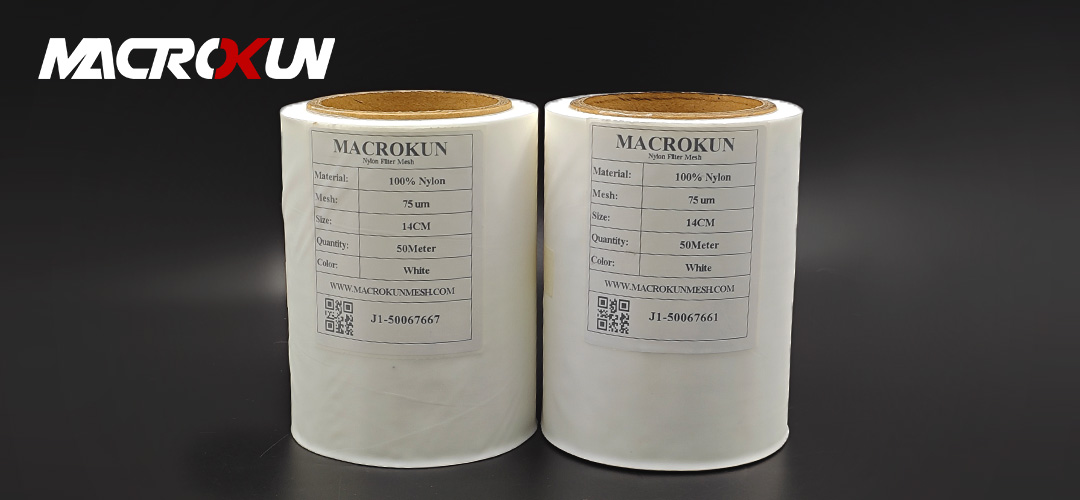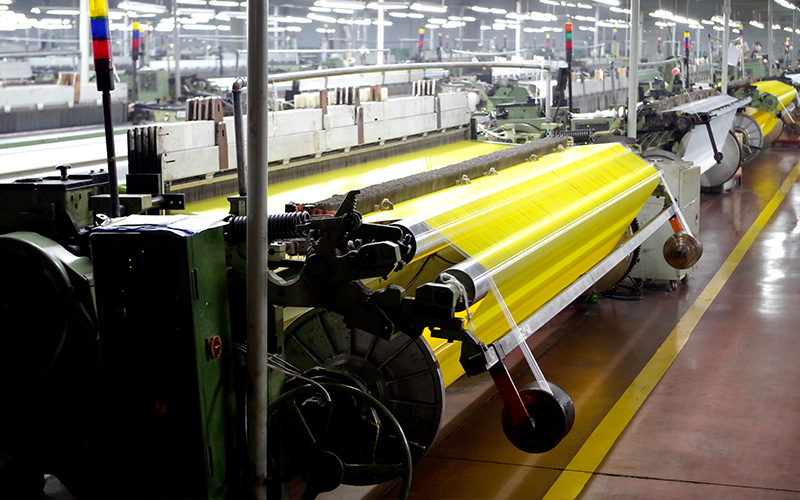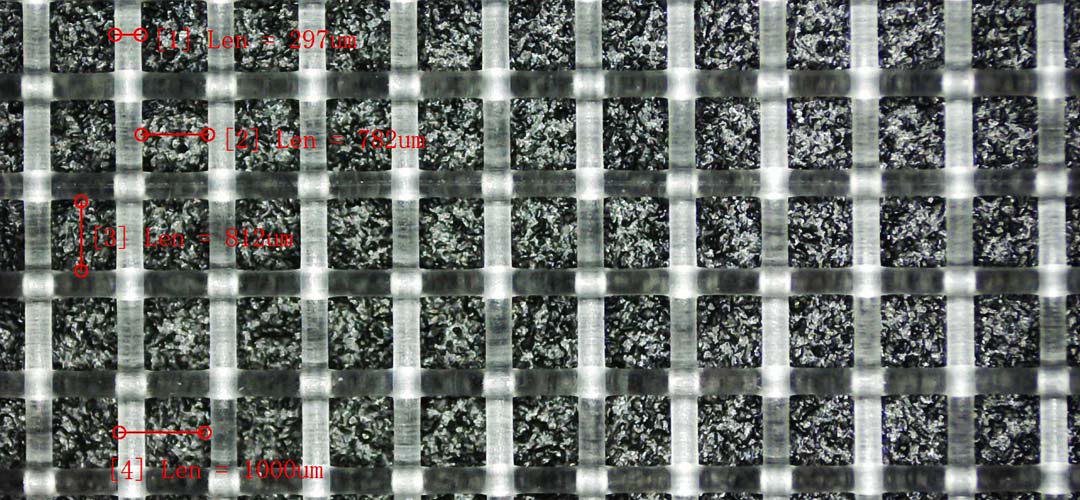Nylon mesh material is a versatile and durable fabric that has a wide range of applications across various industries. Its unique properties make it an ideal choice for many different uses, from filtration to fashion. In this article, we will explore the advantages of nylon mesh material and how it can be utilized in different settings.
One of the key advantages of nylon mesh material is its strength and durability. Nylon is a synthetic polymer that is known for its high tensile strength, making it resistant to tearing and stretching. This makes nylon mesh material ideal for applications where a strong and durable fabric is required, such as in industrial settings or outdoor environments.
Another advantage of nylon mesh material is its flexibility. Nylon is a highly elastic material that can be stretched and molded into different shapes without losing its strength. This flexibility makes nylon mesh material ideal for applications where a fabric needs to conform to different shapes or contours, such as in clothing or upholstery.
Nylon mesh material is also lightweight and breathable, making it a comfortable choice for clothing and accessories. The open weave of nylon mesh allows air to flow through the fabric, keeping the wearer cool and comfortable in hot weather. This breathability also makes nylon mesh material a popular choice for sports clothing and activewear.
In addition to its strength and flexibility, nylon mesh material is also resistant to moisture and chemicals. Nylon is a hydrophobic material, meaning it repels water and dries quickly when wet. This makes nylon mesh material ideal for applications where exposure to moisture is a concern, such as in outdoor furniture or marine environments. Nylon mesh material is also resistant to many chemicals, making it a durable choice for industrial applications where exposure to harsh substances is common.
Nylon mesh material is easy to clean and maintain, making it a practical choice for many different uses. Nylon is a non-absorbent material that resists stains and odors, making it easy to wipe clean with a damp cloth. This low maintenance requirement makes nylon mesh material a popular choice for applications where hygiene and cleanliness are important, such as in medical settings or food processing.
Overall, nylon mesh material offers a wide range of advantages that make it a versatile and practical choice for many different applications. Its strength, flexibility, breathability, and resistance to moisture and chemicals make it an ideal fabric for a variety of uses, from clothing to industrial filtration. Whether you are looking for a durable and comfortable fabric for clothing or a strong and resilient material for industrial applications, nylon mesh material is a reliable choice that will meet your needs.
Nylon mesh material is a versatile and durable fabric that is commonly used in a variety of applications. Its unique properties make it an ideal choice for many different industries, from fashion to industrial manufacturing. In this article, we will explore some of the common applications of nylon mesh material and discuss its key properties that make it such a popular choice.
One of the most common uses of nylon mesh material is in the production of clothing and accessories. Nylon mesh is often used in sportswear, lingerie, and swimwear due to its lightweight and breathable nature. The fabric allows for air circulation, making it comfortable to wear in hot weather or during physical activity. Additionally, nylon mesh is stretchy and flexible, making it an ideal choice for garments that require a snug fit.
In addition to clothing, nylon mesh material is also widely used in the production of bags and accessories. Mesh bags are popular for their durability and breathability, making them a great choice for carrying items such as groceries, sports equipment, or beach gear. Nylon mesh is also commonly used in the construction of backpacks and tote bags, as it is strong enough to hold heavy items while still allowing for air circulation.
Another common application of nylon mesh material is in the manufacturing industry. Nylon mesh is often used as a filter or sieve in industrial processes, where it can separate particles of different sizes or materials. The fabric’s fine mesh structure allows for precise filtration, making it an essential component in industries such as food processing, pharmaceuticals, and wastewater treatment.
Nylon mesh material is also used in the production of screens and barriers for various purposes. In the agricultural industry, nylon mesh is often used to create protective barriers around crops to prevent pests from damaging the plants. The fabric can also be used to create screens for windows and doors, allowing for ventilation while keeping insects out.
One of the key properties of nylon mesh material that makes it so versatile is its strength and durability. Nylon is a synthetic polymer that is known for its high tensile strength, making it resistant to tearing and stretching. This makes nylon mesh material a long-lasting and reliable choice for applications that require a sturdy fabric.
Additionally, nylon mesh material is easy to clean and maintain, making it a practical choice for items that are used frequently or exposed to dirt and grime. The fabric can be machine washed or wiped clean with a damp cloth, making it a low-maintenance option for busy lifestyles.
In conclusion, nylon mesh material is a versatile and durable fabric that is used in a wide range of applications. From clothing and accessories to industrial processes and agricultural barriers, nylon mesh is a popular choice for its strength, breathability, and ease of maintenance. Whether you are looking for a fabric that can withstand heavy use or a material that allows for air circulation, nylon mesh is a reliable option that can meet your needs.
Nylon mesh material is a versatile and durable fabric that is commonly used in a variety of applications. Understanding the key properties of nylon mesh material is essential for determining its suitability for different uses. In this article, we will explore the key properties of nylon mesh material and its various applications.
One of the key properties of nylon mesh material is its strength and durability. Nylon is a synthetic polymer that is known for its high tensile strength, making it ideal for applications that require a strong and durable fabric. Nylon mesh material is resistant to abrasion and tearing, making it suitable for use in applications where the fabric may be subjected to rough handling or harsh conditions.
Another important property of nylon mesh material is its flexibility. Nylon is a highly flexible material that can be easily stretched and molded into different shapes. This flexibility makes nylon mesh material ideal for applications that require a fabric that can conform to irregular shapes or contours. Nylon mesh material can be easily manipulated and shaped to fit a variety of applications, making it a versatile choice for many different uses.
In addition to its strength and flexibility, nylon mesh material is also known for its resistance to chemicals and moisture. Nylon is a non-absorbent material that is resistant to most chemicals, making it ideal for use in applications where the fabric may come into contact with harsh chemicals or liquids. Nylon mesh material is also resistant to mold and mildew, making it a suitable choice for applications where moisture may be present.
Nylon mesh material is also lightweight and breathable, making it ideal for use in applications where air circulation is important. Nylon mesh material allows air to flow through the fabric, making it a comfortable choice for applications where breathability is a priority. Nylon mesh material is also quick-drying, making it suitable for use in applications where moisture may be present.
One of the most common uses of nylon mesh material is in the production of sports apparel and equipment. Nylon mesh material is often used in the construction of athletic jerseys, shorts, and shoes, as well as in the production of sports equipment such as bags and backpacks. Nylon mesh material is lightweight, breathable, and durable, making it an ideal choice for use in sports apparel and equipment.
Nylon mesh material is also commonly used in the production of industrial filters and screens. Nylon mesh material is ideal for use in applications where a strong and durable fabric is required to filter out particles or contaminants. Nylon mesh material can be easily customized to fit specific filtration requirements, making it a versatile choice for use in industrial applications.
In conclusion, nylon mesh material is a versatile and durable fabric that is commonly used in a variety of applications. Understanding the key properties of nylon mesh material is essential for determining its suitability for different uses. Nylon mesh material is known for its strength, flexibility, resistance to chemicals and moisture, lightweight and breathable nature, making it an ideal choice for a wide range of applications.
Nylon mesh material is a versatile and durable fabric that is commonly used in a variety of applications. Understanding the properties and uses of nylon mesh material can help you make informed decisions when selecting this material for your projects.
Nylon mesh material is known for its strength and durability. It is a synthetic material that is made from nylon fibers, which are woven together to create a mesh fabric. This fabric is lightweight and flexible, making it ideal for a wide range of applications.

One of the key properties of nylon mesh material is its breathability. The open weave of the fabric allows air to flow through, making it ideal for use in clothing and accessories. Nylon mesh material is often used in sportswear, such as jerseys and shorts, as well as in backpacks and bags.
Another important property of nylon mesh material is its moisture-wicking capabilities. The fabric is quick-drying and moisture-resistant, making it ideal for use in outdoor gear and activewear. Nylon mesh material is also resistant to mold and mildew, making it a popular choice for use in camping gear and outdoor furniture.

In addition to its strength and durability, nylon mesh material is also easy to care for. To keep your nylon mesh material looking its best, it is important to follow a few simple care instructions.
When washing nylon mesh material, it is best to use a mild detergent and cold water. Avoid using bleach or harsh chemicals, as these can damage the fabric. It is also important to avoid using hot water, as this can cause the fabric to shrink or lose its shape.
After washing, it is best to air dry nylon mesh material. Avoid using a dryer, as the heat can damage the fabric. If you need to iron the fabric, use a low heat setting and place a cloth between the iron and the fabric to prevent damage.
| Series | Mesh Count (/cm) |
Mesh Count (/inch) |
Thread Dia (um) |
Mesh Opening (um) |
Thickness (um) |
Gross Weight (g/m2) |
| NL4/1950 | 4 | 10 | 550 | 1950 | 1100 | 307 |
| NL5/1500 | 5 | 13 | 500 | 1500 | 1000 | 318 |
| NL6/1267 | 6 | 15 | 400 | 1267 | 800 | 244 |
| NL7/1079 | 7 | 18 | 350 | 1079 | 700 | 218 |
| NL8/900 | 8 | 20 | 350 | 900 | 700 | 249 |
| NL9/861 | 9 | 23 | 250 | 861 | 500 | 143 |
| NL9/811 | 9 | 23 | 300 | 811 | 600 | 206 |
| NL10/750 | 10 | 25 | 250 | 750 | 500 | 159 |
| NL10/700 | 10 | 25 | 300 | 700 | 600 | 229 |
| NL12/583 | 12 | 30 | 250 | 583 | 500 | 191 |
| NL12/533 | 12 | 30 | 300 | 533 | 600 | 274 |
| NL14/514 | 14 | 36 | 200 | 514 | 340 | 142 |
| NL16/425 | 16 | 40 | 200 | 425 | 340 | 160 |
| NL20/350 | 20 | 50 | 150 | 350 | 255 | 113 |
| NL20/300 | 20 | 50 | 200 | 300 | 340 | 200 |
| NL24/267 | 24 | 60 | 150 | 267 | 255 | 135 |
| NL28/237 | 28 | 70 | 120 | 237 | 204 | 101 |
| NL30/213 | 30 | 76 | 120 | 213 | 204 | 110 |
| NL32/213 | 32 | 80 | 100 | 213 | 170 | 80 |
| NL36/178 | 36 | 90 | 100 | 178 | 170 | 90 |
| NL40/150 | 40 | 100 | 100 | 150 | 170 | 100 |
| NL43/153 | 43 | 110 | 80 | 153 | 136 | 70 |
| NL48/128 | 48 | 120 | 80 | 128 | 136 | 77 |
| NL56/119 | 56 | 140 | 60 | 119 | 102 | 50 |
| NL64/96 | 64 | 160 | 60 | 96 | 102 | 58 |
| NL72/89 | 72 | 180 | 50 | 89 | 85 | 45 |
| NL80/75 | 80 | 200 | 50 | 75 | 85 | 50 |
| NL100/57 | 100 | 250 | 43 | 57 | 73 | 46 |
| NL110/48 | 110 | 280 | 43 | 48 | 73 | 52 |
| NL120/48 | 120 | 300 | 35 | 48 | 60 | 37 |
| NL120/40 | 120 | 300 | 43 | 40 | 73 | 55 |
| NL130/42 | 130 | 330 | 35 | 42 | 60 | 40 |
| NL130/34 | 130 | 330 | 43 | 34 | 73 | 61 |
| NL140/36 | 140 | 350 | 35 | 36 | 60 | 43 |
| NL157/25 | 157 | 400 | 43 | 25 | 73 | 74 |
| NL180/20 | 180 | 450 | 39 | 20 | 66 | 68 |
| NL200/15 | 200 | 500 | 39 | 15 | 66 | 76 |
| NL220/10 | 220 | 550 | 39 | 10 | 66 | 84 |
| NL240/5 | 240 | 600 | 39 | 5 | 66 | 91 |
To remove stains from nylon mesh material, it is best to spot clean the fabric with a mild detergent and water. Avoid scrubbing the fabric too vigorously, as this can damage the fibers. For tough stains, you can also try using a stain remover specifically designed for nylon fabrics.
By following these simple care instructions, you can keep your nylon mesh material looking its best for years to come. Whether you are using nylon mesh material in clothing, accessories, or outdoor gear, proper care will help ensure that the fabric remains strong, durable, and looking great.
In conclusion, nylon mesh material is a versatile and durable fabric that is ideal for a wide range of applications. Understanding the properties and uses of nylon mesh material can help you make informed decisions when selecting this material for your projects. By following a few simple care instructions, you can keep your nylon mesh material looking its best for years to come.

Pre: Choosing Fine Nylon Mesh Netting for Gardening and Protection
Next: How 200 Micron Nylon Mesh Performs in Industrial Filtration

MACROKUN has established long-term and stable cooperative relations with many transportation companies such as China Post, DHL, FEDEX, USPS, UPS, etc. Of course, MACROKUN can also provide air and sea transportation. The powerful logistics system enables all MACROKUN'S Printing Mesh, Filter Mesh and Filter Bags and so on to be easily and efficiently transported to any place. For quotes and inquiries, please email our sales team.





